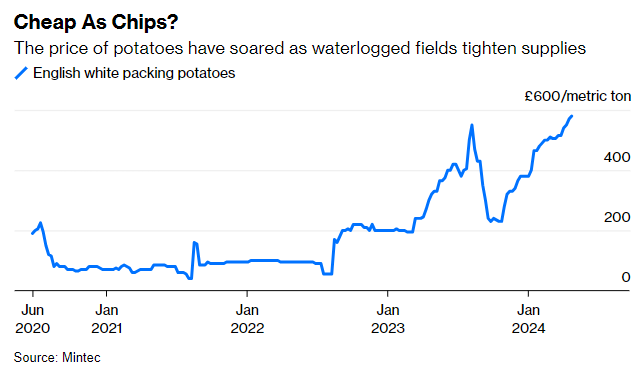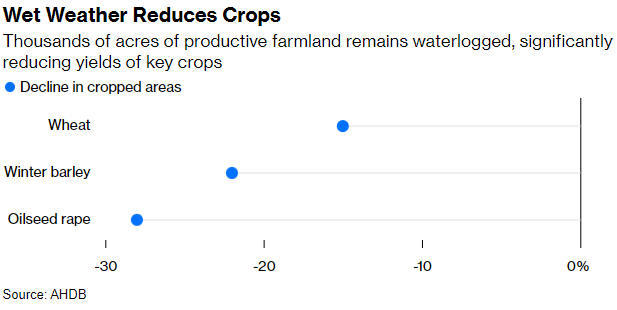Europe’s Potato Industry Navigates Stormy Weather Conditions and Soaring Prices
Amidst Record Precipitation, European Potato Industry Grapples with Sogflation
As weather patterns become increasingly erratic due to the climate crisis, Europe’s potato farmers find themselves in the eye of the storm. Lara Williams reports on the challenges facing the potato industry as sogflation, a term coined to describe the effects of extreme precipitation on agricultural production, takes center stage.
The European Union’s Copernicus climate monitoring service and the World Meteorological Organization (WMO) recently published a report highlighting the unprecedented levels of rainfall across the continent. While extreme heat stress plagued many regions, Europe also experienced significant precipitation, leading to waterlogged fields and hindered harvests.
Potatoes, a staple crop in Europe, have borne the brunt of sogflation. Last year’s poor weather conditions resulted in a shortened harvesting window, leaving significant quantities of potatoes rotting in the ground. The North-Western Europe Potato Growers estimate a 20% decrease in seed availability for 2024, exacerbating concerns about future yields.

Compromised quality and limited availability have driven prices to all-time highs. Potato shortages loom on the horizon, posing a threat to a region where potato consumption ranks among the highest globally. Additionally, delayed planting due to waterlogged soil suggests that the effects of sogflation will persist throughout the year.
The impact of sogflation extends beyond potatoes, with grains and livestock sectors also feeling the strain. Reduced crop yields and livestock mortality rates underscore the vulnerability of Europe’s agricultural industry to extreme weather events.
In response to heightened uncertainty, commodity purchasers are adopting risk mitigation strategies such as forward contracting and diversifying their sourcing locations. However, the complexity of global supply chains presents new challenges in ensuring food security amidst climate-induced disruptions.

While efforts to mitigate emissions are crucial, more support is needed to bolster resilience in the face of escalating risks and costs. As sogflation drives potato prices upward, stakeholders must reevaluate the sustainability and stability of food production systems.
As Europe’s potato industry grapples with the repercussions of sogflation, the adage “as cheap as chips” takes on new meaning, reflecting the sobering reality of a changing climate’s impact on agricultural economies.







